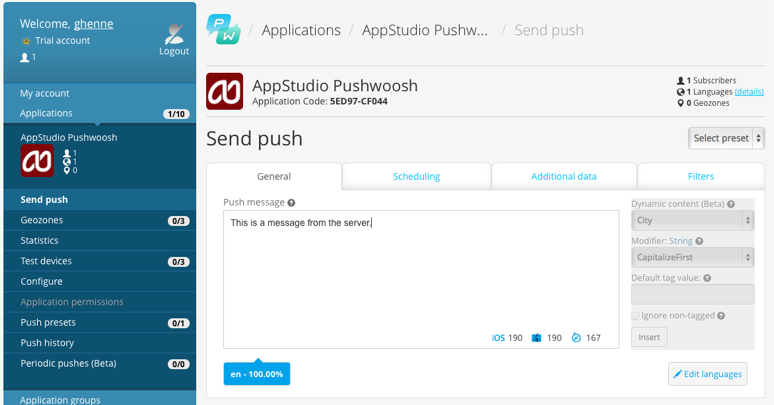Using the Cordova API: Pushwoosh: Difference between revisions
Jump to navigation
Jump to search
No edit summary |
|||
| Line 11: | Line 11: | ||
On the device, we already have our Pushwoosh app running. It is written in AppStudio. A moment or two after we sent the message, this appears: | On the device, we already have our Pushwoosh app running. It is written in AppStudio. A moment or two after we sent the message, this appears: | ||
[[File: | [[File:pushwoosh1.png]] | ||
== Set up a Pushwoosh account == | == Set up a Pushwoosh account == | ||
Revision as of 15:43, 11 June 2014
The Pushwoosh API lets you send notifications from your computer to your app running on the device. While your app is running, if a notification is received, a function in your app will be called with the contents of the notification. It can then take whatever action needed based on the incoming data.
How to send add receive a message
Let's send a simple message to a device. We're assuming everything is set up already. We will cover how to set things up later.
In Pushwoosh, we can compose and send a notification to our app. There are other ways to send notifications: this is the easiest.
On the device, we already have our Pushwoosh app running. It is written in AppStudio. A moment or two after we sent the message, this appears:
